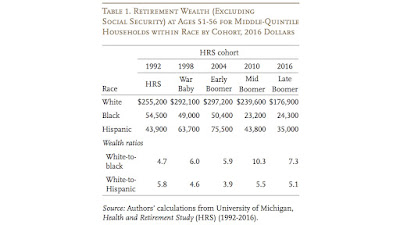Paul Krugman has an excellent piece in the New York Times about why we should not panic about Social Security. You really should read the whole thing. Here are a few excerpts:
... The thing about Social Security is that from the beginning it was
designed to encourage misconceptions. It looks, on casual inspection,
like a giant version of a private pension plan. ...
I’m
pretty sure that it was set up to look like an ordinary pension fund
because that made it politically easier to sell. But in reality, Social
Security has never been run like a private pension plan. ...
For one thing, for the first half-century of the program’s existence it had almost no assets; in 1985, the trust fund
was only large enough to pay around two months’ worth of benefits. So
it has always operated mainly on a pay-as-you-go basis, with today’s
payroll taxes paying for today’s retiree benefits, not tomorrow’s.
I often get mail from people claiming that this makes Social Security a
Ponzi scheme. But it isn’t. It’s just a government program supported by a
dedicated tax ...
I get a lot of mail from people saying that we should simply eliminate
the upper limit on the payroll tax. That would certainly raise a lot of
money. But bear in mind that there’s no fundamental reason Social
Security has to be financed with payroll taxes — we only do it that way
because back in 1935, F.D.R.’s advisers thought it would be a good idea
to dress Social Security up to look like a private pension fund. ...
The other idea I hear a lot is that we
should raise the retirement age — which has already been increased, from
65 to 67. After all, people are living longer, so they can work longer,
right?
Well, some
people are living longer. But one key point in thinking about Social
Security is that the number of years you can expect to spend collecting
benefits has become increasingly linked to the income you earned earlier in your life. ...
[C]alling for an increase in the retirement age
is, in effect, saying that janitors can’t be allowed to retire because
lawyers are living longer. Not a very nice position to take. ...







